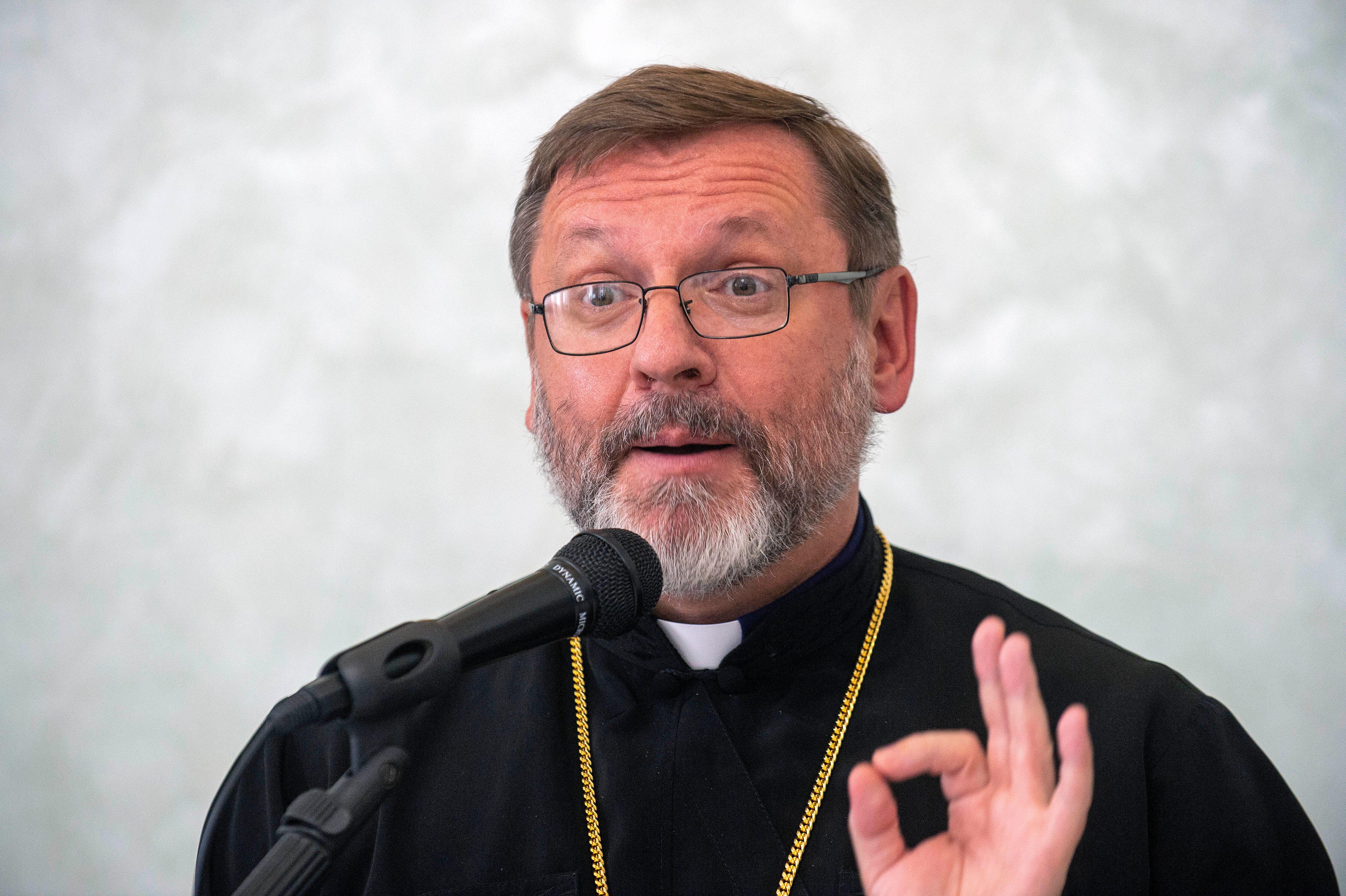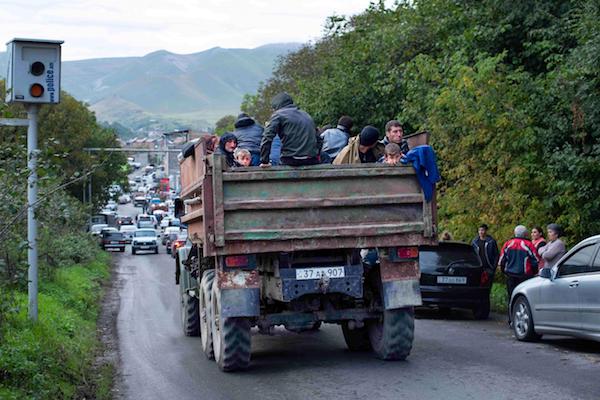Pope Francis appealed to the international community last weekend to promote mediation between Azerbaijan and Armenia as tens of thousands of ethnic Armenians fled the contested enclave of Nagorno-Karabakh.
Speaking during the Sunday Angelus he said: “I renew my call for dialogue between Azerbaijan and Armenia, hoping that the talks between the parties, with the support of the international community, will favour a lasting agreement that will put an end to the humanitarian crisis.”
Pope Francis also said he prayed for victims of an explosion last week at a fuel depot in the city of Stepanakert in Nagorno-Karabakh. At least 170 people were killed amid the desperate search for fuel by people leaving by car.
The Nagorno-Karabakh exodus marks “very sad and dark days”, said Armenian Catholic Bishop Mikael A Mouradian of California’s Armenian Catholic Eparchy.
A lightning offensive by Azerbaijan on the contested enclave drove the flight from the region, with a World Council of Churches delegation witnessing shelling by Azerbaijani forces in late September.
Armenian authorities said over 100,000 people had arrived from the enclave, accounting for more than 80 per cent of its Armenian population.
In December 2022, Azerbaijan blocked the Lachin Corridor, the only road connecting Nagorno-Karabakh with Armenia, cutting off humanitarian supplies and bringing tensions to a crisis.
The roots of the conflict date back to 1921 when the then Soviet Union attached Armenian majority Nagorno-Karabakh to the Azerbaijan Soviet Republic.
Following the collapse of the Soviet Union in the 1990s, Armenia retook control of the enclave though it remained internationally recognised as part of Azerbaijan. In recent times, mainly Muslim Azerbaijan has been accused of ethnic cleansing and most refugees of Armenian Christian descent say they see no future in Nagorno-Karabakh.
Cafod announced this week that it is liaising with colleagues in the Caritas Internationalis network, including Caritas Armenia, to assess how best to support the refugees. The aid agencies called for prayers for victims of the violence.



 Loading ...
Loading ...